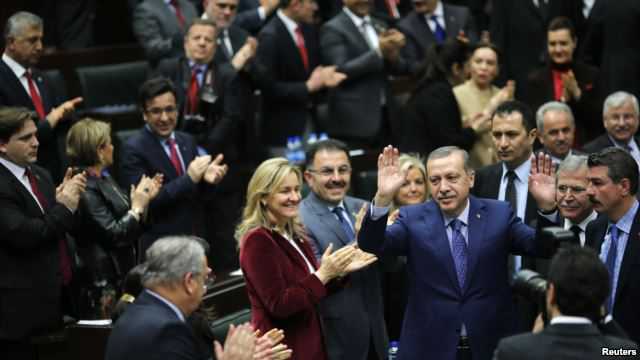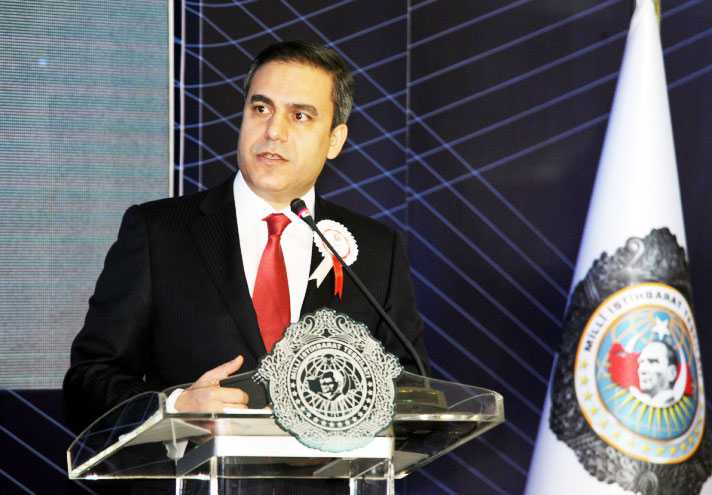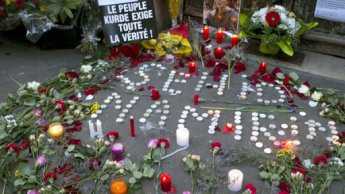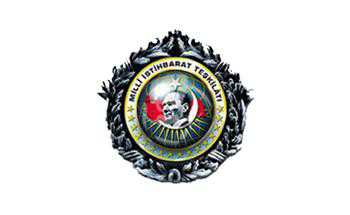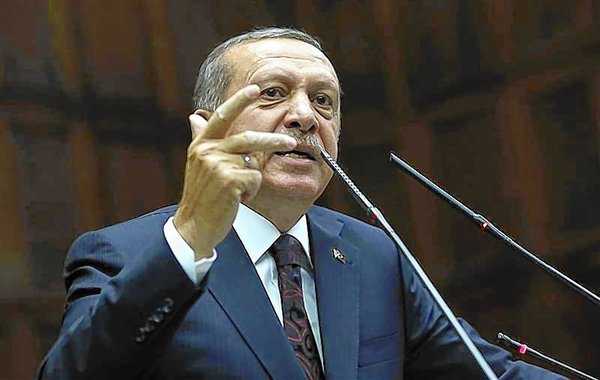
Control of the NATO member’s security apparatus goes to the heart of a feud between Erdogan and Islamic cleric Fethullah Gulen, a former ally based in the United States whose network of followers wields influence in the police and judiciary.
Erdogan accuses Gulen’s Hizmet (“Service”) network of orchestrating a plot to unseat him, tapping thousands of phones, including his own, over years and using leaked recordings to unleash corruption allegations against his inner circle in the run-up to a series of elections. Gulen denies involvement.
According to an initial draft, seen by Reuters, proposals before parliament include giving the National Intelligence Organisation (MIT) more scope for eavesdropping and foreign operations, as well as greater immunity from prosecution for top agents.
The MIT is run by Hakan Fidan, one of Erdogan’s closest confidantes, who was himself the subject of an inquiry in February 2012 seen by the prime minister’s circle as a challenge to his authority from a Gulen-influenced judiciary.
Deputy Prime Minister Besir Atalay said the priority was to update existing laws which were decades out of date and to bring Turkey’s spy agency in line with international peers.
“As with Western examples, the aim is to make the legislation more transparent and bestow the agency with a greater range of options,” he told parliament.
“With this draft law, the MIT’s activities regarding foreign security, national defence, the struggle against terrorism, counter-intelligence and cyber crime will be intensified.”
Erdogan’s AK party has a large majority in parliament.
Erdogan’s response to the corruption inquiry – purging thousands of officers from the police force and reassigning hundreds of prosecutors and judges – has raised concern in Western capitals, including Brussels, which fears the EU candidate nation is moving further away from European norms.
“Events over the past three months have cast doubt on Turkey’s commitment to European values and standards,” EU enlargement commissioner Stefan Fuele said, citing tightened control of the judiciary and “massive transfers” of police and prosecutors as part of Erdogan’s purging of the bodies.
Erdogan’s aides says such criticism underestimates the level of threat to national security from what they describe as a “parallel state” seeking to sabotage his government and thwart his ambition to stand in presidential elections in August.
The latest of the leaked recordings, posted on YouTube days ahead of March 30 local polls which were seen as a referendum on Erdogan’s rule, was of a meeting between Fidan, Foreign Minister Ahmet Davutoglu and the deputy head of the armed forces discussing a possible military operation in Syria.
It was by far the most damaging security leak in the months-old scandal and access to YouTube has been blocked since then. The BTK telecoms regulator said on Thursday it would not end the ban despite court rulings that it should do so.
“INTELLIGENCE STATE”
Declaring victory after his AK Party dominated the electoral map in the municipal polls despite the corruption scandal, Erdogan said he would “enter the lair” of enemies who accused him of graft and leaked state secrets.
Senior officials have said Turkey will launch a criminal investigation into the alleged “parallel state” backed by Gulen, a crackdown likely to be led by the MIT. Nine police officers were detained in the southern city of Adana on Wednesday in connection with an inquiry into wiretapping, local media said.
“If the (Gulen) movement is very well represented in the police and the judiciary, you have to have someone to go after them, and it seems it will be the MIT, that seems to be the logic behind this,” said Svante Cornell, Turkey expert at the Johns Hopkins School of Advanced International Studies.
The draft bill, which could be amended during debate, seeks to impose strict jail terms for the publication of leaked classified documents and protect the intelligence chief from prosecution by all but the country’s highest court of appeal.
“This law is equipping MIT with authorities it should not have in a state of law. These authorities will turn Turkey into an intelligence state,” said Sezgin Tanrikulu, a deputy from the main opposition CHP party.
“Under this law, it will become impossible to launch inquiries into all illegal activities conducted by MIT in the past and the future,” he told a news conference, citing controversy over the agency’s recent alleged role in blocking an investigation into shipments of supplies to Syria.
Local media said the MIT had intervened to prevent gendarmerie officers from searching trucks in the southern province of Adana in January which prosecutors suspected of carrying weapons to Syrian rebel groups.
The MIT has not commented on the reports but government officials have said the trucks were carrying aid.
The agency has played a critical role in peace talks with Kurdish militants, an effort to end an insurgency in Turkey’s southeast which has cost 40,000 lives over three decades and hobbled the development of one of its poorest regions.
“The role it played in running the Kurdish peace process gave Erdogan and the MIT some credibility with Western allies,” said the John Hopkins School’s Cornell. “What you’ve seen is that with Syria policy, MIT has played a very significant role, and a very murky role. In general there has been increasing concern about the role MIT has been playing.”
(Additional reporting by Orhan Coskun in Ankara, Daren Butler in Istanbul, Adrian Croft in Brussels; Writing by Nick Tattersall; editing by Ralph Boulton)

